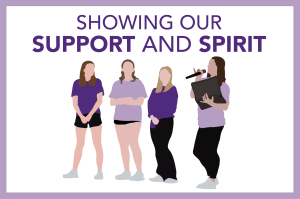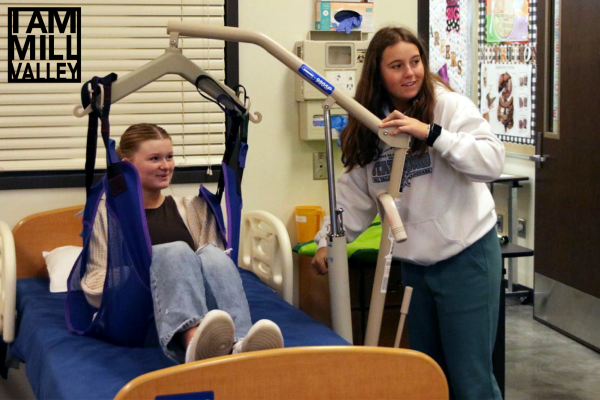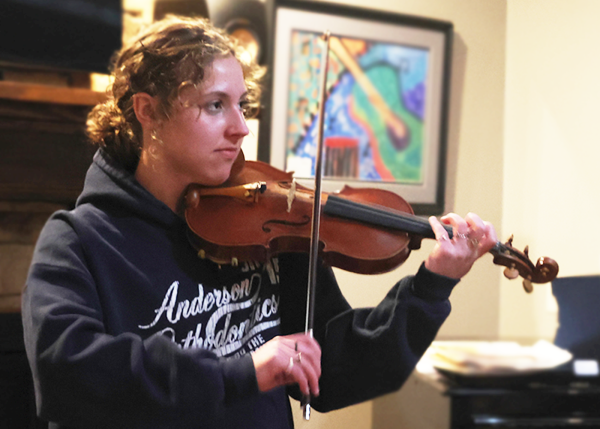General Anxiety Disorder affects students
Students cope with Anxiety
November 19, 2014
Singing the national anthem solo at a boy’s soccer game is something senior Brienna Kendall has always wanted to do. Now, in her last year of high school, she is forced to give up her final opportunities to do what many others in her choir classes have been able to. What holds her back each time? General Anxiety Disorder – something she has had to deal with for nearly six years.
Although the word “anxiety” is often used loosely to describe feelings of stress and fear, the term addresses more than just that. Oxford Dictionary’s psychiatric definition of Anxiety is “a nervous disorder characterized by a state of excessive uneasiness and apprehension, typically with compulsive behavior or panic attacks.”
“I would say Anxiety is an overwhelming feeling of being out of control,” Kendall said. “You worry about little things that may not matter, but it’s not something that you consciously do … It’s definitely mental, emotional and physical all in one.”
According to the Anxiety and Depression Association of America, Anxiety Disorder is the most common mental illness in America.
Senior Hannah Hilton said she has been experiencing Anxiety symptoms her whole life, but was not diagnosed until last year. Her breaking point was last year in her Anatomy class when she continually felt as if her chest was “going to break open.” For Hilton, Anxiety makes many aspects of her life more difficult than they should be.
“Anxiety holds me back almost every day … I’ve had to end relationships because I’ve gotten Anxiety about it for no reason. I’ve been sick to my stomach thinking what could go wrong,” Hilton said. “Everyday I keep myself from doing things that I probably can do because I think, ‘What if?’ and the ‘what if’ kind of outweighs the ‘What if it’s good?’”
Junior Margaret Hempleman was diagnosed with Anxiety during the start of her freshman year. She describes the disorder as “feeling like you’re in a box and there’s not really anything you can do to get out of it … the longer you sit there, you feel worse and worse.” Isolation, the dark and stress are among the things that trigger Hempleman’s Anxiety.
“I was scared when I first started noticing the symptoms because it was really uncomfortable and I felt trapped,” Hempleman said. “When I was first diagnosed, I was really [frustrated] because I knew I was going to have to deal with it for a long time, but also kind of happy because I knew there was something they could do to fix it.”
Doctors go about treating Anxiety in a variety of ways, but according to The National Institute of Mental Health, therapy is generally the most effective treatment.
“A type of psychotherapy called cognitive behavior therapy is especially useful for treating [General Anxiety Disorder],” according to an article from NIMH. “It teaches a person different ways of thinking, behaving, and reacting to situations that help him or her feel less anxious and worried.”
Anxiety attacks can present themselves in a number of ways depending on the person. Hilton’s Anxiety attacks initially cause heavy breathing, which quickly turns into a tight, burning chest and the feeling of “choking on air.” Hempleman also cites heavy breathing as a symptom. Kendall described her most severe attacks as “debilitating.” Her stomach tightens, her brain is “scattered” and she can’t put her emotions into words. As it progresses, she goes into cold sweats, shakes and becomes nauseous. On a few occasions, during severe panic attacks, she has thrown up, passed out and become unable to speak.
Although Anxiety disorders often prove weakening during episodes, Kendall has learned how to cope with her Anxiety Disorder.
“Don’t be afraid to say you have Anxiety … It’s not negative,” Kendall said. “Seek treatment; therapy can help and medicine can help, but that’s not the only answer. [Do] whatever works best for you because it is a mental disease and [how to treat it] all depends on the person.”






















